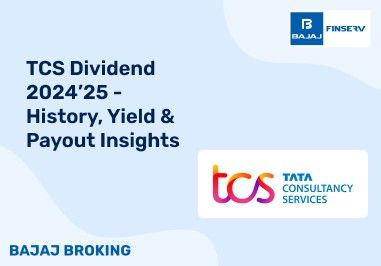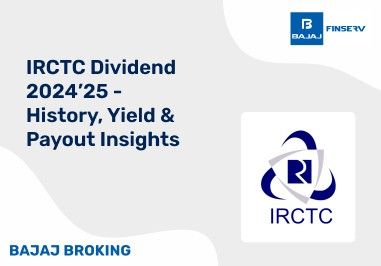Stock market investments are one of the buzzing topics since always. From traders and investors to businesses and laymen, stock market news never fails to impress people. In the past few years, stock market indices like the Nifty index fund and others have gained major popularity. The reason behind this is not just the stock market happenings but also an increase in the number of traders and investors.
Nifty index fund is one of the most sought-after indices in the stock market. If you are new to the stock market, you must begin with understanding the Nifty index fund. A nifty index fund is simply a type of mutual fund. In a Nifty index fund, you do not choose a single company or a share but invest in all the top Nifty 50 companies like a mutual fund.
As a fresher, you may find the nifty index fund confusing. However, these are quite easy and simple to understand. In the Nifty index funds, the Nifty 50 companies participate and the investor invests proportionately in all these companies. The process of investing in the Nifty index fund is not a complicated one. Read on as we discuss how to Invest in a Nifty index fund.
How to invest in a Nifty index fund in 6 Steps?
Investing in a Nifty index fund is a matter of a few clicks. Here we have discussed the process of Nifty index fund investment in just 6 steps. Read on to start your journey today:
Open a Demat account
The first step in investment is always a trading and demat account. It is compulsory for anyone to have a trading and a demat account to start with trading or investment. If you already have an account, you may directly log in. If you don't have one, get it opened at your preferred stockbroker.
Login to your trading platform
Once your account is created, you will receive a unique user ID and password. Using these credentials, log in to your trading platform.
Comprehensive analysis of stocks
After logging in, navigate to the section “nifty mutual funds*. Here, you need to choose the Nifty index fund. It is suggested that you compare different available options to choose the most suited one.
Choose a Nifty Index Fund
Make sure to analyse the past records of the funds and future predictions to make an informed decision. Finally, choose a nifty index fund of your choice.
Read the fine prints
Before you make the payment, take a pause and take your time to read the fine print. It is essential to learn all about your investment beforehand. If you are satisfied, proceed.
Invest: SIP or lump-sum
The last step is investment. You have two options to clear the investment. You may either choose a Systematic Investment Plan (SIP) or a lump-sum stock price. In SIP, you invest a sum amount every month at a fixed date. However, in a lump-sum model, you need to invest a lump-sum amount at once.
Why Should You Invest in Nifty Index Funds?
The Nifty index fund is an interesting option for many. However, before investing your money, it is essential to understand why you can be the right fit for an investment. Here we have discussed the top three reasons why investing in a Nifty index fund makes sense:
As discussed before, Nifty index funds are passively managed funds. So, the upfront costs and fees associated with the index are low compared to various other actively managed funds. If you are willing to make the most out of your money, a passively managed fund can be a good choice. With the Nifty index fund, that's exactly what you can expect. The investment is free from human bias and the managers only replicate the Nifty 50 index so, the costs and risks are low.
Nifty index fund is quite a popular choice when it comes to diversifying investment portfolios. As an investor, you may have built a portfolio that consists of certain high-risk investments. To balance out your portfolio and reduce the risks involved, investing in a passively managed fund like Nifty index fund can be a good idea.
The Nifty index fund tries to match the returns offered by the Nifty 50 index. Being passively managed, the performance of the Nifty index fund is similar to that of the top 50 NSE stocks. Investors can expect market-linked returns that are comparatively more stable and predictable than equity fund investments. If you are looking for a low-risk investment, Nifty index fund can be the one.
How Is the Nifty Index Calculated?
The free-float market capitalisation methodology is used to calculate the Nifty index fund. The National Stock Exchange or NSE uses the formula to calculate the performance of the stocks in the index funds. The formula used is as follows:
Nifty 50 Index Value = (Current Market Capitalisation ÷ Base Market Capitalisation) * 1,000
In the formulae given above:
Current market capitalisation = weighted market capitalisation of all the stocks in the index
The base date is 3rd November 1995
1000 = base value of Nifty 50 index
Using this formula, the National Stock Exchange calculates the value of the Nifty index fund.
Risks Involved in Nifty Index Fund Investments
Usually, the Nifty index fund is a low-risk investment. However, there are still risks involved that you must be aware of. Before you invest in a Nifty index fund, it is crucial for investors to carefully understand the risk factors. It helps you make an informed decision. Here are some of the common risks of investing in a Nifty index fund:
The stock market is not free from volatility and risks even if you are investing in Nifty index funds. Economic downturns or a major global event may impact the performance of Nifty stocks. So, one of the common risks is market volatility.
Nifty index fund comprises the top 50 stocks listed on the National Stock Exchange. These stocks are from 14 different sectors. So, a major event or change in any of these sectors has the potential to impact the overall position of the Nifty 50 index. It becomes a major concern especially when a heavily weighted sector gets impacted. So, sectoral risk is always there.
BA bearish market is usually not the ideal time for investment. If you invest when the market is sinking, you may not be able to reap the most promising returns. So, it is essential to carefully time your investment.
Nifty 50 index funds are not fully diversified. Although it represents stocks from 14 different sectors, various sectors like Fintech or renewable energy are not properly represented. If you are aiming for a well-diversified portfolio, Nifty 50 index fund alone may not suffice.
Important Factors to Evaluate Before Investing
As an investor, you must consider a few components before investing in Nifty Index Funds. Here we have discussed some important factors to consider:
What are you aiming for through your investment? If the target is to beat the Nifty returns and get a higher return, a Nifty index fund may not be the right choice. That's because the purpose of the Nifty index fund is to replicate the index performance to offer similar returns.
Before investing in the stock market, it is essential to assess the risks involved. With Nifty index funds also, the risk of market volatility, poor sectoral performance, etc. are there.
Usually, Nifty index funds have a lower expense ratio as the fund replicates the performance of the Nifty 50 index. However, there are still costs involved. So, make sure to have a detailed understanding of the expense ratio.
Tracking error shows the performance of the Nifty index fund with respect to the Nifty 50 index. It shows how closely both these are performing. A lower tracking error means the Nifty index fund is performing better and vice-versa.
Final Takeaway
Whether it's your stock market investment debut or you want to diversify your investment portfolio, a Nifty index fund can be a good idea. Due to the stable returns and low-risk profile, the Nifty index fund is preferred by various investors. For a new investor, it can be a great start while for others, it can be a tool to balance the high-risk investments. Investing in Nifty index funds is quite simple. All you need is a demat and trading account and you are good to go. Make sure to read the documents carefully before investing your money.
Disclaimer: Investments in the securities market are subject to market risk, read all related documents carefully before investing.
This content is for educational purposes only. Securities quoted are exemplary and not recommendatory.
For All Disclaimers Click Here: https://www.bajajbroking.in/disclaimer













